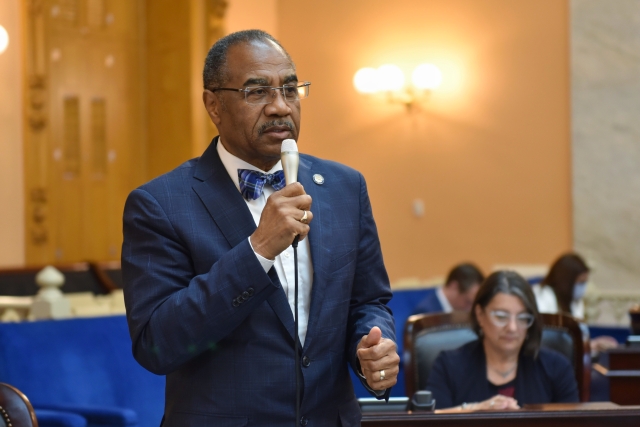A Case for Small and Minority Businesses

From my earliest days as a legislator, one of my top priorities has been promoting and supporting small and minority businesses. Two years ago, I had the privilege of touring Ohio and hearing from hundreds of minority business owners. From my home in Northeast Ohio to all corners of the state like Columbus, Cincinnati, Dayton, Toledo, and Lima, I witnessed the tremendous potential and diversification of these businesses.
The focus groups from this listening tour proved essential in informing my work on Senate Bill 105 from the 134th General Assembly, which created local reciprocity for the state Minority Business Enterprise (MBE) certification, and my recently introduced Senate Bill 166, which allows Minority Business Direct Loans through the Ohio Department of Development to fund working capital. These address two large structural barriers facing minority businesses. Without hearing directly from MBEs about the lack of uniformity in minority business contracting and difficulty accessing working capital, the legislature would not have known how to best support this vital part of our state’s economy. When we as legislators converse with those in our communities, we can identify and sponsor an agenda that sustainably expands economic opportunity in this state.
Small and minority businesses are the backbone of our communities – especially the Black community – and are an essential part of our economy. As of 2020, minority-owned firms generated revenues in excess of $1.6 trillion nationally. In 2018, minority businesses represented about 15% of all businesses in Ohio, around half of which were owned by women. Since then, state support for MBEs has only grown. With the passage of S.B. 105 last year, the Ohio Department of Development has started working with local governments to allow them to accept state certification to meet their minority business contracting goals. Every year, the state certifies more MBEs than the year prior and increases the number of goods and services purchased from MBEs, with participation rates exceeding the minimum 15% which is set-aside.
Yet, despite how much progress has been made in support of minority businesses, more work is still needed. While the state has overall exceeded the 15% set-aside for goods and services from MBEs, several cabinet agencies continue to fail at meeting this floor. Nationwide, a 2010 report on capital access found that minority businesses are more likely to receive smaller loan amounts at higher interest rates or be outright denied loans than non-minority businesses. Minority businesses were hit harder by and have recovered slower from the COVID-19 pandemic than their non-minority peers. In the wake of the Students for Fair Admissions v. Harvard ruling, a federal district court prompted the US Small Business Administration to make sweeping changes to the eligibility for the 8(a) Business Development program, which has provided billions of dollars in federal contracts to minority businesses. Minority businesses need our full commitment now more than ever before.
This General Assembly has rightly prioritized economic development. In this last budget, we have invested hundreds of millions of dollars into making Ohio a premier state for entrepreneurship. What cannot be lost, though, is ensuring that all ships rise together. Small and minority businesses are an integral part of our communities and economy. We cannot maximize our productivity without leveraging the potential of all enterprises. I remain committed to ensuring that Ohio’s small and minority business are given a fair deal and that we build economic opportunity for all.
